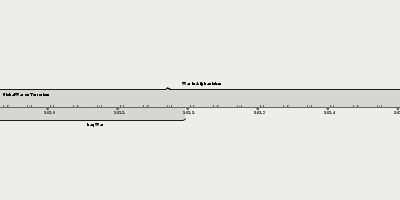Syrian civil war (15 mars 2011 – 20 h 23 min, 4 nov 2025 ans)
Description:
The Syrian civil war was an armed conflict that began with the Syrian revolution in March 2011, when popular discontent with the Ba'athist regime ruled by Bashar al-Assad triggered large-scale protests and pro-democracy rallies across Syria, as part of the wider Arab Spring. The Assad regime responded to the protests with lethal force, sparking a civil war. The main phase of the war lasted almost 14 years and culminated in the fall of the Assad regime in December 2024 during a major offensive by opposition forces. Many sources regard this as the end of the civil war.The Syrian opposition to Bashar al-Assad began an insurgency, forming groups such as the Free Syrian Army. Anti-Assad forces received arms from states such as Qatar and Turkey. Pro-Assad forces received financial and military support from Iran and Russia: Iran launched a military intervention in support of the Syrian government in 2013, and Russia followed in 2015. By this time, rebels had established the Syrian Interim Government after capturing the regional capitals of Raqqa in 2013 and Idlib in 2015.
In 2014, the Islamic State of Iraq and Syria (ISIS) seized control over Eastern Syria and Western Iraq, prompting a United States-led coalition to launch an aerial bombing campaign against ISIS, while providing ground support and supplies to the Syrian Democratic Forces (SDF), a Kurdish-dominated coalition led by the People's Defense Units (YPG). In 2016, Turkey launched an invasion of northern Syria in response to the creation of the Kurdish-led Autonomous Administration of North and East Syria (Rojava), while also establishing the Syrian National Army (SNA) to help it fight ISIS and pro-Assad forces.
The December 2016 victory of pro-Assad forces in the four-year Battle of Aleppo marked the recapture of what had been Syria's largest city before the war. In Idlib Governorate, the Hay'at Tahrir al-Sham (HTS) militia formed the Syrian Salvation Government, a technocratic, Islamist administration that governed the region from 2017 until 2024. ISIS was defeated in the Raqqa and Deir ez-Zor campaigns. In December 2019, regime forces launched an offensive on Idlib province, which ended in a ceasefire lasting from 2020 until November 2024. During this period, there were regular clashes between pro-Assad forces and HTS.
HTS launched a major offensive on November 27th, 2024, with support from the SNA. Aleppo fell in three days, giving momentum to revolutionaries across the country. Southern rebels launched their own offensive, capturing Daraa and Suwayda. HTS captured Hama, while the Syrian Free Army and the SDF launched separate offensives in Palmyra and Deir ez-Zor, respectively. On December 8th, Bashar al-Assad fled to Moscow as Homs and Damascus fell to the rebels. His prime minister transferred power to the new government, and Israel launched an invasion of Syria's Quneitra Governorate (including the UN buffer zone) from its 58-year occupation of the Syrian Golan Heights.
At the Syrian Revolution Victory Conference held at the Presidential Palace in Damascus on January 29th, 2025, the new government announced the dissolution of several armed militias and their integration into the Syrian Ministry of Defense, as well as the appointment of former HTS leader Ahmed al-Sharaa as president of Syria.
Ajouté au bande de temps:
Date:
15 mars 2011
20 h 23 min, 4 nov 2025 ans
~ 14 years
